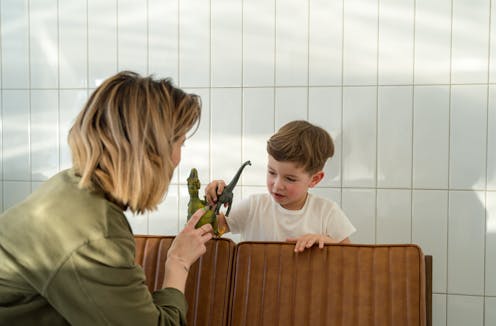'Mum, can you play with me?' It's important to play with your kids but let them make the rules
- Written by Victoria Whitington, Associate Professor in Education Futures (Adjunct), University of South Australia
 Ron Lach/Pexels
Ron Lach/PexelsYoung children love to play with their mums and dads. But for busy parents, it’s often the last thing they feel like doing.
Running a home and family, doing paid work and trying to squeeze in some personal time mean parents don’t have a lot of time or energy to play magical princess dragons or soccer ninjas.
But playing...
















